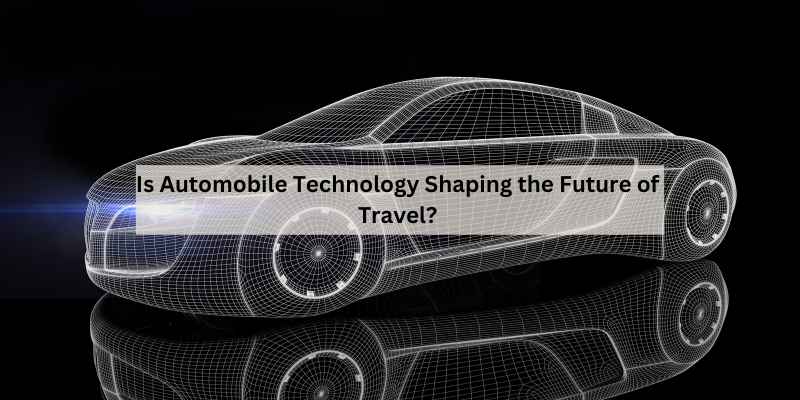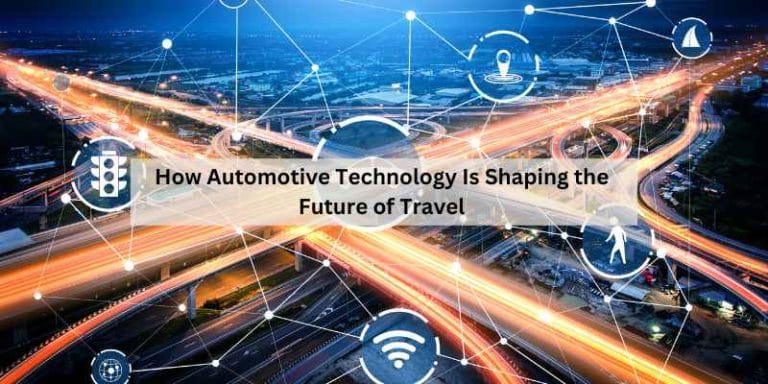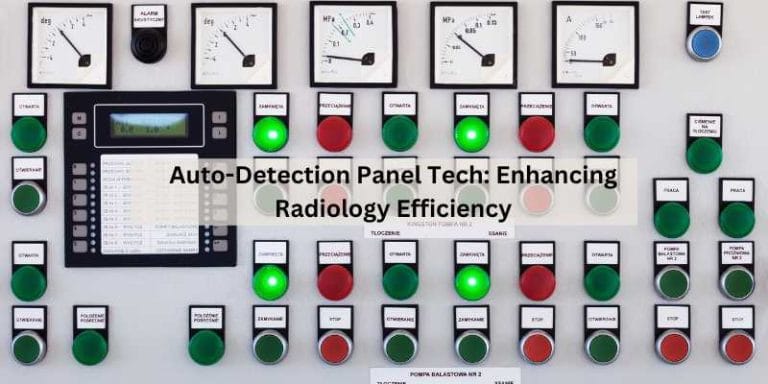Is Automobile Technology Shaping the Future of Travel?
Automobile technology involves the study, design, and development of various technologies used in cars and other vehicles. It encompasses advancements in engineering, materials science, electronics, and other fields to improve the performance, safety, and efficiency of automobiles.
The automotive industry, which includes the production, distribution, and maintenance of motor vehicles, relies heavily on automotive technology. This field offers career opportunities for professionals who are well-versed in the maintenance, diagnosis, and repair of vehicle systems. With the ever-increasing demand for innovative and sustainable transportation solutions, automotive technology plays a crucial role in shaping the future of the automotive industry.
The Evolution Of Automobile Technology
The evolution of automobile technology has been marked by key milestones in automotive innovation, shaping the way we travel and interact with vehicles. From the transition from horse-drawn carriages to the advent of hybrid vehicles, the automotive industry has witnessed remarkable advancements. The development of automobiles has revolutionized transportation, offering convenience and efficiency. Automobiles are a fusion of various materials such as metal, plastic, and rubber, comprising intricate components that work harmoniously. These vehicles are classified as a form of technology, playing a vital role in modern society. The study of automotive technology encompasses the creation, design, and repair of vehicle technology, offering numerous benefits and career opportunities in this dynamic field.
Electric Vehicles: Leading The Charge
Electric vehicles (EVs) are leading the charge towards a greener future, thanks to significant advancements in battery technology. These developments have resulted in longer range and shorter charging times, making EVs a more viable option for consumers. Moreover, the infrastructure for this electric future is rapidly expanding, with an increasing number of charging stations and renewable energy sources. As a result, the automotive industry is witnessing a shift towards sustainable transportation, with EVs playing a pivotal role in reducing carbon emissions and dependence on fossil fuels.
Autonomous Cars: The Road To Self-driving
Autonomous cars are becoming a reality thanks to advancements in sensors and AI technology. These technologies allow cars to sense their environment and make decisions based on that information. The use of sensors and AI has made cars smarter, allowing them to react to obstacles and traffic in real-time, leading to a safer driving experience. However, the rise of autonomous cars also brings ethical and legal implications that must be addressed. For example, who is liable in the event of an accident involving an autonomous car? As the technology continues to evolve, it is important to consider these implications and ensure that the benefits of autonomous cars are balanced with responsible use.
Connectivity And In-car Technology
The advancement in automobile technology has led to a significant emphasis on connectivity and in-car technology. Infotainment systems and user interface have become crucial components of modern vehicles, offering seamless integration with smartphones and other devices. The role of IoT (Internet of Things) in vehicle connectivity cannot be overstated, as it enables real-time data exchange and communication between vehicles, infrastructure, and other connected devices.
Environmental Impacts And Sustainability
Automobile technology has significant environmental impacts, contributing to air pollution and resource depletion. Sustainability in this sector involves developing electric and hybrid vehicles, using alternative fuels, and reducing emissions to minimize the industry’s ecological footprint. Efforts in these areas aim to create a more sustainable future for transportation.
| Environmental Impacts and Sustainability |
| Reducing Emissions with Advanced Tech |
| Recycling and the Lifecycle of Vehicles |
As the world becomes increasingly conscious of the impact of human activities on the environment, the automobile industry has been under scrutiny for its contribution to emissions and pollution. To address this issue, advanced technologies have been developed to reduce emissions and improve fuel efficiency. These technologies include hybrid and electric vehicles, as well as engines that use cleaner fuels like hydrogen and biofuels.
In addition to developing cleaner technologies, sustainability in the automobile industry also involves considering the lifecycle of vehicles. This means designing vehicles with materials that can be easily recycled and reducing waste in the manufacturing process. At the end of a vehicle’s life, recycling and proper disposal of its components can help reduce environmental impact.
Overall, the automobile industry has a responsibility to prioritize sustainability and reduce its impact on the environment. By developing advanced technologies and implementing sustainable practices, the industry can continue to provide transportation while minimizing its negative impact.
Safety Innovations In Modern Vehicles
Modern vehicles are equipped with advanced safety features that fall into two categories – active and passive safety. Active safety features are designed to prevent accidents from happening in the first place. These include technologies like lane departure warning, automatic emergency braking, and blind spot monitoring. Passive safety features, on the other hand, are meant to protect occupants in the event of a collision. These features include airbags, seat belts, and crumple zones.
Thanks to these safety innovations, the impact of technology on traffic safety has been significant. According to the National Highway Traffic Safety Administration, the number of fatalities in car crashes has decreased by 2.4% in recent years. This is due in large part to the implementation of these safety features in modern vehicles.
The Influence Of Automobile Tech On Urban Planning
Automobile technology has significantly impacted urban planning, particularly in the development of smart city concepts and transportation. Intelligent Transport Systems play a crucial role in reducing congestion and improving overall efficiency. These systems utilize advanced technologies such as traffic management algorithms, real-time data analysis, and smart infrastructure to optimize traffic flow and minimize delays. Additionally, the integration of smart city concepts with transportation aims to create more sustainable and accessible urban environments, promoting the use of alternative transportation modes and reducing reliance on individual vehicle ownership. As a result, urban planners are increasingly incorporating automobile technology into their strategies to address the evolving needs of modern cities.
Future Prospects: What’s Next For Automobile Technology?
Automobile technology is constantly evolving, with advancements in electric and autonomous vehicles shaping the future. From self-driving cars to innovative safety features and sustainable energy sources, the automotive industry is set for a transformation that will revolutionize transportation. The integration of AI and connectivity will further enhance the driving experience, making automobiles more efficient and safer.
| Potential for Alternative Fuels |
| As the world moves towards a greener and more sustainable future, the potential for alternative fuels in the automobile industry is becoming more and more important. Electric cars are already gaining popularity, but other alternatives such as hydrogen fuel cells and biofuels are also being explored. These alternative fuels have the potential to reduce greenhouse gas emissions and decrease our reliance on fossil fuels. However, there are still challenges to be overcome, such as the high cost of production and lack of infrastructure. Nevertheless, the potential for alternative fuels in the automobile industry is exciting and holds promise for a more sustainable future. |
| The Integration of AI and Machine Learning |
| Artificial intelligence (AI) and machine learning are already being integrated into the automobile industry in various ways. For example, self-driving cars use AI and machine learning algorithms to make decisions on the road. AI is also being used to improve safety features in cars, such as collision avoidance systems and lane departure warnings. Additionally, machine learning can be used to analyze data from sensors in cars to improve performance and fuel efficiency. As AI and machine learning technology continue to advance, the potential for integration into the automobile industry is vast and exciting. |
Frequently Asked Questions
Are Cars Considered Technology?
Yes, cars are considered technology as they use engines and various parts to transport us from one place to another. They are made from materials like metal, plastic, and rubber, and have advanced engineering and electronics. Cars are a form of transportation technology.
What Industry Is Automotive Considered?
The automotive industry is considered a manufacturing industry that involves the production, wholesaling, retailing, and maintenance of motor vehicles. It encompasses various sectors related to automobiles, such as automobile technology, engineering, and design. Cars are considered a form of technology, utilizing engines and various components to transport individuals from one place to another.
What Is Classified As An Automobile?
An automobile is a passenger vehicle that is not used for transporting people for hire. It is a machine that uses an engine to power its wheels and transport us from one place to another. Cars are made from materials like metal, plastic, and rubber, and have various parts that work together to make them function properly.
What Is Automotive And Related Technology?
Automotive and related technology refers to the study and application of various technological advancements in the automotive industry. This includes the design, manufacturing, maintenance, and repair of vehicles. It involves understanding and working with electrical systems, fuel injection systems, and other components that make up modern automobiles.
Conclusion
Automobiles are undoubtedly a form of technology. They are complex machines that utilize engines and various components to transport us from one place to another. Cars are made from materials like metal, plastic, and rubber, and they require maintenance and repair.
The automotive industry encompasses the production, retailing, and maintenance of motor vehicles. Studying automotive technology involves understanding the mechanics and design of self-propelled vehicles. Overall, automobiles play a significant role in our daily lives and continue to evolve with advancements in technology.







